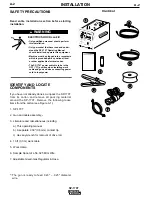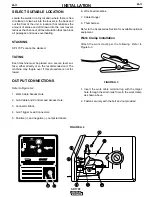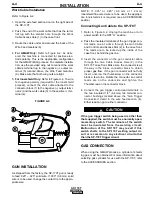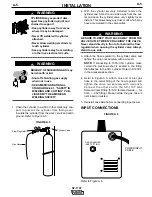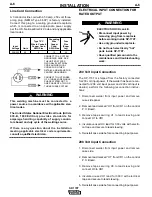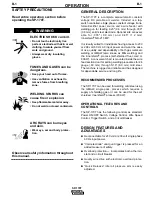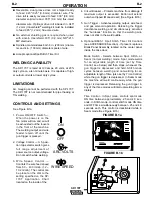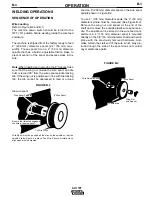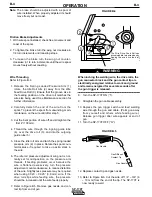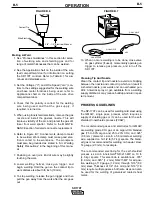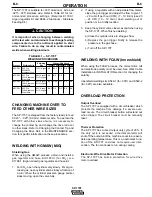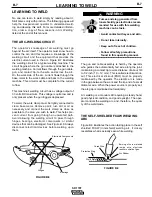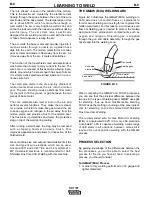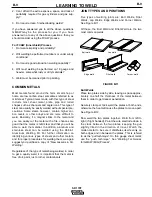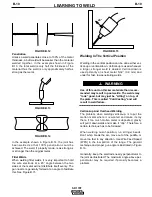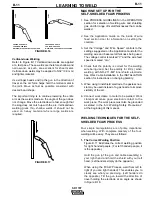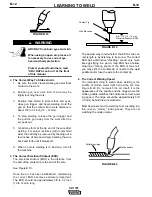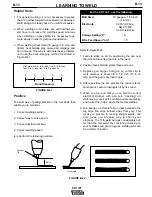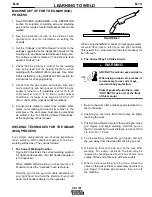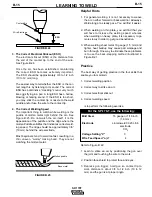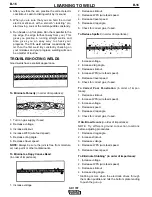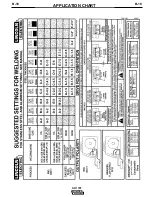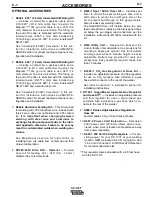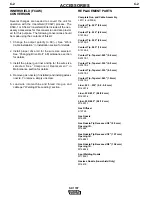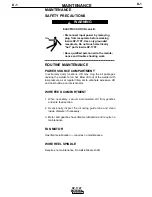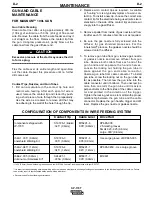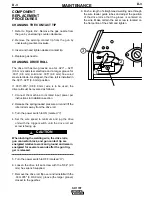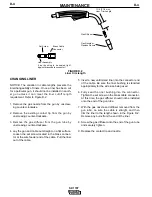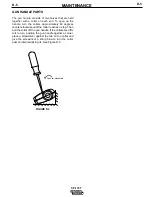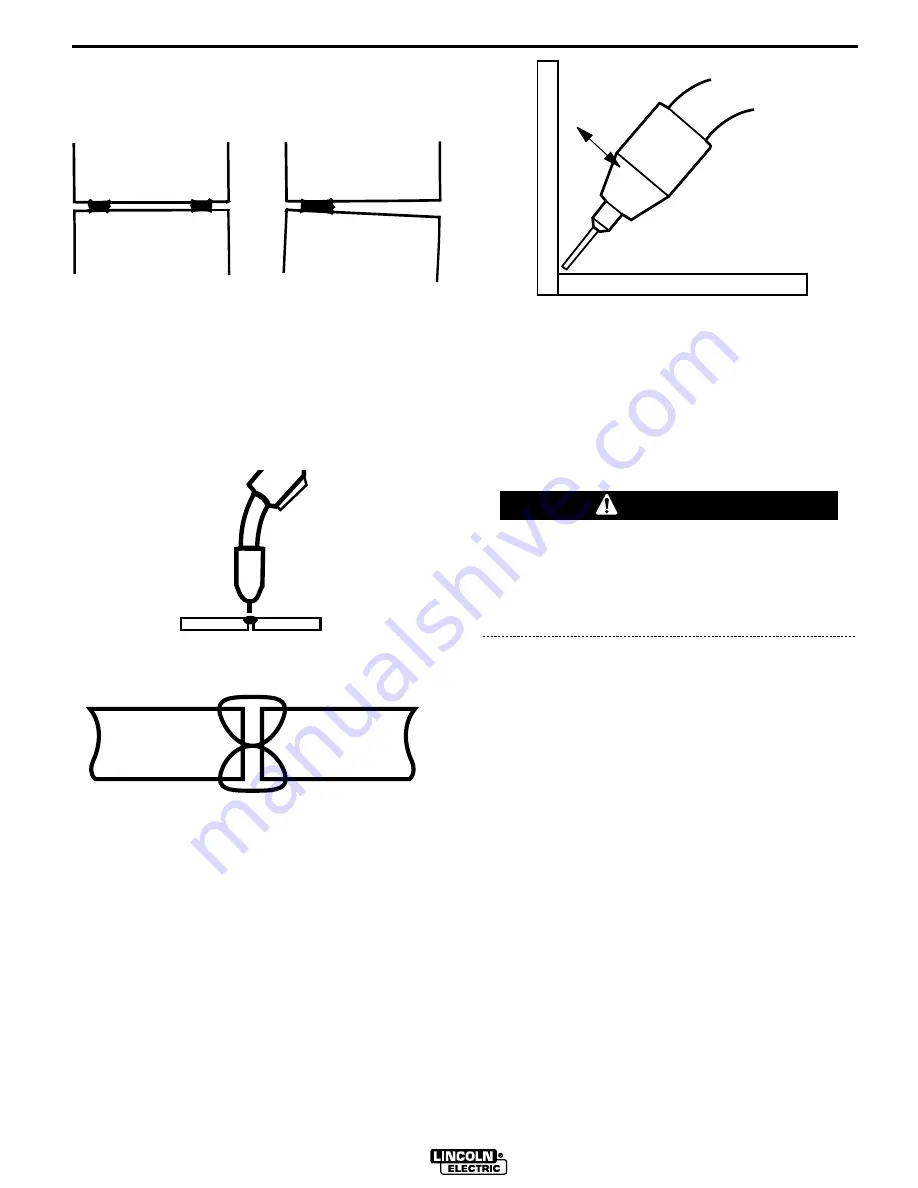
SP-170T
B-10
B-10
LEARNING TO WELD
FIGURE B.12
Penetration
Unless a weld penetrates close to 100% of the metal
thickness, a butt weld will be weaker than the material
welded together. In the example shown in Figure
B.13, the total weld is only half the thickness of the
material thus the weld is only approximately half as
strong as the metal.
FIGURE B.13
FIGURE B.14
In the example shown in Figure B.14, the joint has
been welded so that 100% penetration could be
achieved. The weld, if properly made, is as strong as
or stronger than the original metal.
Fillet Welds
When welding fillet welds, it is very important to hold
the wire electrode at a 45° angle between the two
sides or the metal will not distribute itself evenly. The
gun nozzle is generally formed at an angle to facilitate
this. See Figure B.15.
FIGURE B.15
Welding In The Vertical Position
Welding in the vertical position can be done either ver-
tical-up or vertical-down. Vertical-up is used whenever
a larger, stronger weld is desired. Vertical-down is
used primarily on sheet metal 5/32” (3.9 mm) and
under for fast, low penetrating welds.
Use of this unit on thicker materials than recom-
mended may result in poor welds. The welds may
“look” good, but may just be “sitting” on top, of
the plate. This is called “Cold Casting” and will
result in weld failure.
Vertical-up And Overhead Welding
The problem, when welding vertical-up, is to put the
molten metal where it is wanted and make it stay
there. If too much molten metal is deposited, gravity
will pull it downwards and make it “drip”. Therefore, a
certain technique has to be followed.
When welding out-of-position, run stringer beads.
Don’t whip, break the arc, move out of the puddle, or
move too fast in any direction. Use Wire Feed Speed
(WFS) in the low portion of the range. The general
technique and proper gun angle is illustrated in Figure
B.16.
Generally, keep the electrode nearly perpendicular to
the joint as illustrated. The maximum angle above per-
pendicular may be required if porosity becomes a
problem.
45°
WARNING
Summary of Contents for SP-170T
Page 31: ...B 18 SP 170T B 18 APPLICATION CHART ...
Page 44: ...SP 170T NOTES ...

